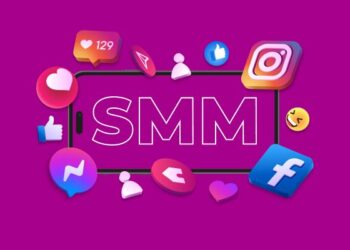Social media has transformed the way we communicate, interact, and conduct business. With millions of users worldwide, platforms such as Facebook, Instagram, Twitter, and LinkedIn have become powerful tools for individuals and businesses to connect, share information, and promote their products or services. In this digital era, understanding and harnessing the potential of social media marketing has become crucial for success. Two important strategies that businesses employ in the age of social media are Search Engine Marketing (SEM) and Social Media Marketing (SMM). In this article, we will delve into these strategies, exploring how they can be utilized to leverage platforms for success.
1. Search Engine Marketing (SEM)
What is SEM? a. Definition and scope b. Key components: paid search and organic search
Importance of SEM in the Age of Social Media a. Increased online visibility b. Targeted advertising c. Driving website traffic d. Higher conversion rates
Implementing SEM effectively a. Keyword research and optimization b. Ad campaign creation and management c. Monitoring and analyzing performance d. Continuous optimization and testing
Case studies and success stories a. How Company X increased sales through SEM b. The impact of SEM on brand awareness for Company Y
2. Social Media Marketing (SMM)
What is SMM? a. Definition and scope b. Key platforms for SMM: Facebook, Instagram, Twitter, LinkedIn
Importance of SMM in the Age of Social Media a. Expanding reach and building brand awareness b. Engaging with target audience c. Generating leads and conversions d. Enhancing customer relationships
Implementing SMM effectively a. Identifying target audience and selecting appropriate platforms b. Content creation and curation c. Engaging with followers and responding to feedback d. Utilizing paid advertising options
Case studies and success stories a. How Company A increased its customer base through SMM b. The impact of SMM on brand loyalty for Company B
3. Integration of SEM and SMM for Success
Synergy between SEM and SMM a. How SEM and SMM complement each other b. Leveraging SEM data for SMM strategies and vice versa
Cross-platform promotion and coordination a. Creating cohesive marketing campaigns across platforms b. Consistent branding and messaging
Tracking and measuring success a. Utilizing analytics tools for performance evaluation b. Adjusting strategies based on data insights
Case studies and success stories a. How Company Z achieved remarkable growth through SEM and SMM integration b. The impact of cross-platform promotion on revenue for Company C
Conclusion
In the Age of Social Media, businesses cannot afford to overlook the potential of SEM and SMM. Search Engine Marketing provides a means to drive targeted traffic to websites and increase conversion rates. Social Media Marketing, on the other hand, helps businesses expand their reach, engage with their audience, and build relationships. By integrating these two strategies, businesses can leverage the power of social media platforms to achieve remarkable success. Through cross-platform promotion, consistent branding, and effective tracking and measurement, businesses can maximize their visibility, engagement, and ultimately their bottom line. In this fast-paced digital landscape, SEM and SMM have become essential tools for businesses looking to thrive in the age of social media.





